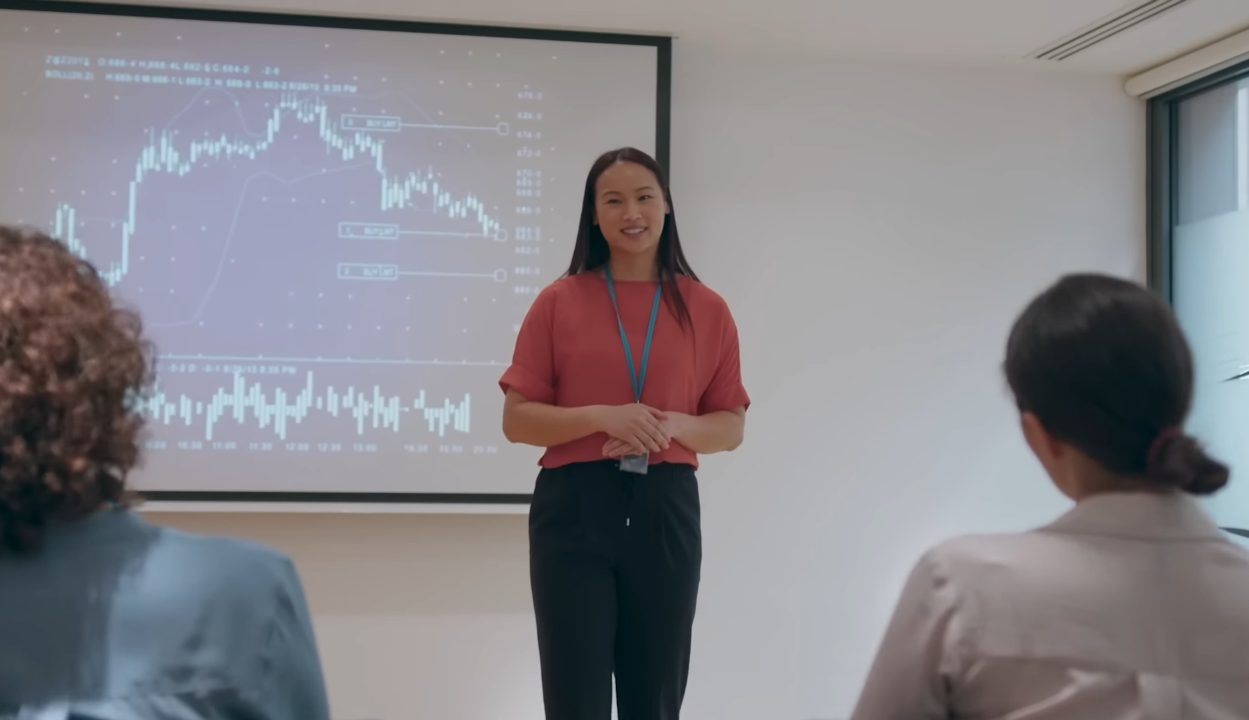1. Thinking:

For VUS, the thinking about the rule of law is paramount. For those in the legal profession like you, you believe that no matter how hard it is, you can still stay committed. If you think that is terrible, you won't want to do it. But if you think you are working in the best career development environment, then no matter how hard it is, it becomes a passion that you can overcome. Each time you overcome difficulties is a time you grow in your work. When making a choice, you should be happy with that choice.
I don't think there is a perfect harmony for everything in life. You can do your job well but still need time to have fun, spend time with family, or do other work. That is impossible.
Initially, I simply thought that my spending management was not effective, so I wanted to find a better way. Upon researching, I realized the cause came from two factors: one is that my knowledge mindset was not complete, and the other is that I lacked tools. Personal financial management depends on each individual; everyone has different circumstances, conditions, and habits, making it hard to expect everyone to have the same mindset and habits.
Therefore, I was concerned about how to approach it effectively. I decided to observe how others, those who are successful in personal financial management, think and how to learn and adapt to my conditions and habits. I learned from videos by Mr. Hieu on the YouTube channel Hieu TV, which contain free and easy-to-understand content.
What is personal financial management? The scope of this knowledge is quite broad and cannot be fully covered in one video. Therefore, I will briefly mention a few key points to lay the groundwork for the following sections.
Step one, systematize personal financial goals. The goal of financial freedom is a good goal to pursue, requiring a long-term vision of 10 to 20 years or more. There are clear goals for each stage to avoid getting lost, such as financial safety by calculating the minimum monthly spending multiplied by 12 and then by 25, financial independence by calculating the standard monthly spending multiplied by 12 and then by 25, and financial freedom plus a mindset about financial freedom.
2. Finance:

Step two, assess your financial health. Knowing yourself and knowing others, you will not lose in a hundred battles. Each person has different starting points and positions, so it is necessary to clearly identify your minimum spending and standard spending each month.
Step three, manage and adjust spending habits. Good spending habits help reduce the pressure of earning money, making it easier to plan and build financial goals. Maintaining good spending habits helps avoid increasing costs when income rises and makes it easier to reach financial milestones.
Step four, improve income and increase savings. Once good spending habits are established, you can focus on improving income. There are active and passive incomes, but in the early stages, improving active income is easier and more effective.
Step five, build idle cash flow for investment. You must ensure cash flow control, fill emergency funds, and funds for major plans before the surplus money is truly idle. Without a reserve fund, it is easy to withdraw investment money to solve daily life problems.
This will greatly affect plans and calculations in investment. Step six is to evaluate and improve the previous five steps. When it comes to personal financial management, many people focus on investment and consider it the main goal because they are facing many financial issues and want to quickly escape difficult situations and get rich quickly. However, the information on the internet often encourages investing as early as possible, and that is also the advice from many financial experts. But I think differently. I want to focus on management factors, ensuring income, spending, saving, and investing.
Notes when starting: When I first started, I had many questions and didn't know who to ask, reflecting while working and asking others if possible. Therefore, I actively recorded issues to share. First, keep everything as simple as possible. When starting, I often had high expectations: a lot of income, a lot of data, making many reports, having more information, trying to grasp issues quickly, covering all aspects. Then I realized that this thinking was hasty and very difficult to implement, with low effectiveness. It is like someone who is weak trying to train a lot to get healthy quickly, which sounds unreasonable. The more you do that, the more tired you become.
When changing your mindset, we have to stretch to think, remember, and digest new knowledge. Just doing that is tiring, so don't try to be creative and demand to do well right away. There may be a lot of information, but extracting information is weak. Just a few basic parameters are enough: total income, total spending, minimum spending level, standard spending level, monthly savings amount, and total current assets. That is already a lot for a beginner. Each time has different management needs and goals. Once the six steps above are clearly defined, you need to proceed slowly and steadily with each step. If any step is uncertain, go back and improve it immediately; don't rush to move on.
3. Improvement:

Two, regularly record to manage spending habits. Recording is very important. I realized I couldn't remember expenses that occurred two days ago; I forget very quickly. So how can I know my spending habits for a month if I don't record everything? Small expenses like parking fees and iced tea may seem insignificant, but when added up over a month, they are not small at all, as they are our habits. These things are no different from lobsters on a small dike but can cause significant damage. If left unchecked, just checking and tightening a little can improve many issues. We easily waste small things, but few people waste large things. And waste is waste.
This will greatly affect plans and calculations in investment. Step six is to evaluate and improve the previous five steps. When it comes to personal financial management, many people focus on investment and consider it the main goal because they are facing many financial issues and want to quickly escape difficult situations and get rich quickly. Information from the internet often encourages investing as early as possible, and that is also the advice from many financial experts. However, I think differently. I want to focus on management factors, ensuring income, spending, saving, and investing.
Notes when starting
When I first started, I had many questions and didn't know who to ask, reflecting while working and asking others if possible. Therefore, I actively recorded issues to share. First, keep everything as simple as possible. When starting, I often had high expectations: a lot of income, a lot of data, making many reports, having more information, trying to grasp issues quickly and covering all aspects. But I realized that this thinking was very hasty and difficult to implement, with low effectiveness. It is like someone who is weak trying to train a lot to get healthy quickly, which sounds unreasonable and only makes them more tired.
When changing your mindset, we have to stretch to think, remember, and digest new knowledge. Just doing that is tiring, so don't try to be creative and demand to do well right away. There may be a lot of information, but extracting information is weak. Therefore, just a few basic parameters are enough: total income, total spending, minimum spending level, standard spending level, monthly savings amount, and total current assets. That is already a lot for a beginner. Each time has different management needs and goals; once the six steps above are clearly defined, you need to proceed slowly and steadily with each step. If any step is uncertain, go back and improve it immediately; don't rush to move on.
4. Management:

Regularly record to manage spending habits
Recording is very important. I realized I couldn't remember expenses that occurred two days ago; I forget very quickly. So how can I know my spending habits for a month if I don't record everything? Small expenses like parking fees and iced tea may seem insignificant, but when added up over a month, they are not small at all, as they are our habits. These things are no different from lobsters on a small dike but can cause significant damage. If left unchecked, just checking and tightening a little can improve many issues. We easily waste small things, but few people waste large things. And waste is waste, regardless of size. If you don't improve small waste, how can you improve large waste?
Recording can also become a habit. To form a habit, the initial stage requires discipline and perseverance. Creating a good habit and reducing a bad habit is something very worthwhile, even though in the initial stage, we may feel uncomfortable and reluctant to maintain it. To easily record income and expenses, we should use simple and convenient tools.
Third, do not rush. Personal finance is tied to us for a lifetime, so it is necessary to recognize that this is a lifelong endeavor. When starting, we often have an eager mindset, expecting immediate results. But after a long time, the desire begins to diminish, emotions stabilize, and we start to see changes happening too slowly, losing interest. This can easily lead to frustration and giving up midway.
I liken the journey to achieving financial freedom to a marathon. How others run is their business; we must have a firm stance and determination to reach the finish line. To run such a long distance, we need to train our health, prepare mentally, gather knowledge, and equip ourselves with tools to help us run better. Usually, when I first learn, I feel the most excited in the first three months, then it gradually decreases. But in reality, three months only help me take the first and second steps. The next steps, three and four, can take from six months to a year to improve income and accumulate into reserve funds. The speed varies from person to person, but the initial stage is often the most challenging and unstable. Therefore, it is essential to set the right mindset from the beginning and not rush.
I have a principle: unstable emotions are what easily cause people to lose money; being happy can lead to loss, being sad can lead to loss, and rushing can lead to loss. The most important thing in keeping money is to maintain stable emotions and a strong mindset. Above is the entire article "How to Start Learning Personal Financial Management" by author Duong AQ. I hope that with this introductory video on personal financial management, you can somewhat envision your financial management path more clearly.
